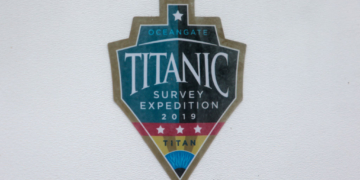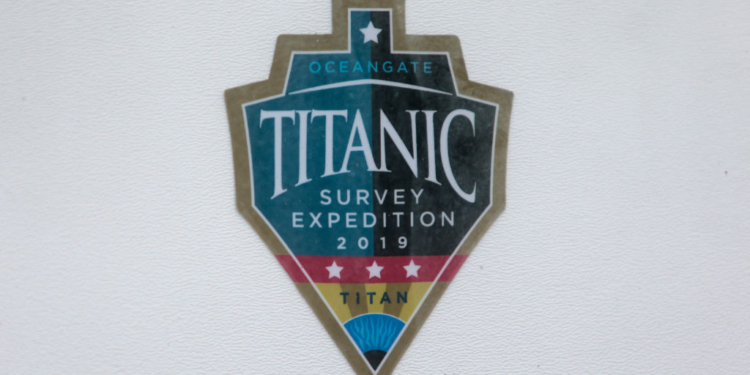A bombshell report released Tuesday by the U.S. Coast Guard concludes that the Titan submersible tragedy, which claimed five lives during a 2023 dive to the Titanic wreck, was entirely preventable — and CEO Stockton Rush could have faced criminal charges had he survived, according to the Associated Press.
Rush and four passengers were killed in a catastrophic implosion on June 18, 2023, just two hours into their descent to the Titanic site. The disaster set off a massive international search and prompted calls for stricter oversight of private deep-sea expeditions.
According to the report, OceanGate, the Washington-based company that operated Titan, had “critically flawed” safety procedures, a “toxic workplace culture”, and a history of ignoring and falsifying key safety information.
“There is a need for stronger oversight and clear options for operators who are exploring new concepts outside of the existing regulatory framework,” said Jason Neubauer of the Marine Board of Investigation.
OceanGate suspended operations in July 2023. Spokesperson Christian Hammond confirmed the company has been wound down, is cooperating with investigators, and offered condolences to the victims’ families.
But the report pulls no punches: “By strategically creating and exploiting regulatory confusion and oversight challenges, OceanGate was ultimately able to operate TITAN completely outside of the established deep-sea protocols.”
The Coast Guard revealed that numerous employees and former contractors had raised red flags for years — only to be silenced, threatened, or fired. The Marine Board concluded that Rush “exhibited negligence”, and that “had he not died in the implosion, the case would have been handed off to the U.S. Department of Justice.”
Among the most damning revelations: Rush submitted a fraudulent sea service letter to the Coast Guard’s National Maritime Center to obtain credentials. The letter falsely claimed prior service on Titan and misrepresented its specifications, even though the vessel was never registered or admeasured.
The report also detailed a 2010 incident, in which Rush piloted wealthy passengers aboard a submersible intended only for scientific use — causing $10,000 in damage after removing a critical battery component without proper documentation. A veteran sub pilot cited that trip as evidence of OceanGate’s disregard for safety more than a decade before the Titan disaster.
As for the Titan itself, the Coast Guard found its design, certification, maintenance, and inspections were all inadequate. The carbon fiber hull, a key feature touted by the company, was found to introduce structural weaknesses.
Financial desperation also played a role. In early 2023, OceanGate reportedly stored Titan outdoors in Canada during winter, exposing the hull to damaging temperature fluctuations.
The tragedy killed five men: Stockton Rush, French explorer Paul-Henri Nargeolet, British billionaire Hamish Harding, and Pakistani businessman Shahzada Dawood along with his 19-year-old son, Suleman.
Nargeolet’s family filed a $50 million lawsuit, alleging the crew experienced “terror and mental anguish” before their deaths and accusing OceanGate of gross negligence.
Titan had made multiple voyages to the Titanic wreck since 2021. Its final dive on Sunday, June 18, 2023, ended in tragedy. After losing contact with its support ship, Titan was declared overdue. Ships, planes, and rescue teams rushed to the site, 435 miles south of St. John’s, Newfoundland.
Authorities operated for days under the hope of finding survivors. But eventually, wreckage was located 330 yards (300 meters) off the Titanic’s bow — confirming what many feared: a total implosion.
Richard Wiese, president of The Explorers Club, where Nargeolet and Harding were members and Rush was a friend, said: “Our responsibility is to ensure that as exploration becomes more accessible, it also becomes safer.”
As lawsuits mount and families seek justice, the Coast Guard’s findings lay bare a troubling picture: regulatory loopholes, falsified records, and reckless ambition — with deadly consequences.

























